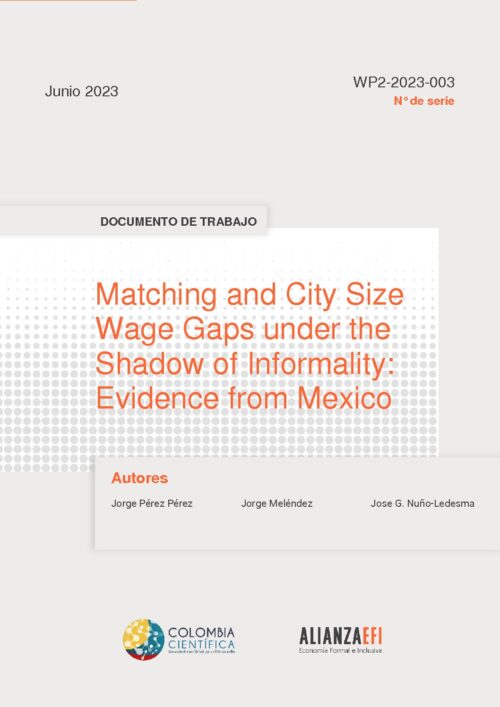Larger labor markets provide workers and firms with better opportunities to find each other, enhancing positive assortative matching. We measure the extent of these agglomeration externalities in Mexico, where informal work represents a large share of employment and coexists with formal labor markets. Using a matched employer-employee dataset comprising the near universe of formal workers in Mexico, we estimate models for wages with additive worker and workplace fixed effects. We interpret the covariance between these fixed effects in a given geographical area as a measure for assortative matching. We correlate our matching measures to city size. The relationship between city size and matching is weak in Mexico’s formal labor markets. Doubling city size enhances assortative matching by just half what would be expected from previous estimates for developed countries. Analyzing the reasons behind these diminished agglomeration externalities, we find a negative relationship between the size of the informal labor market in a city and the degree of assortative matching in the formal labor market. We also show that a lower share of services employment and a preponderance of small firms debilitate city size matching advantages in Mexico.
Autores:
- Jorge Meléndez
- Jorge Pérez Pérez
- Jose G. Nuño Ledesma
Palabras clave:
- agglomeration
- City Size Wage Gap
- Informality
- Labor Market
- matching
- México
Categorías:
- Proyecto 2
- Documentos de trabajo
